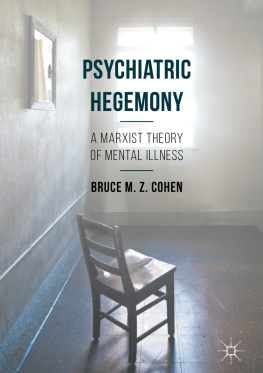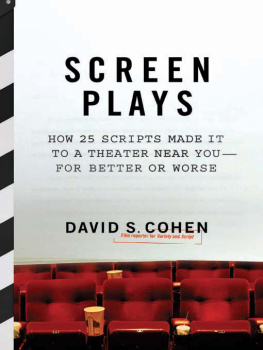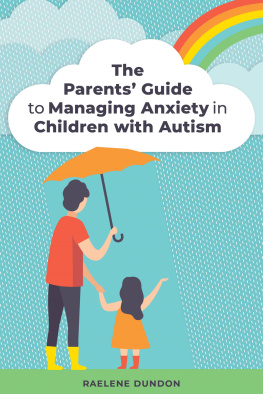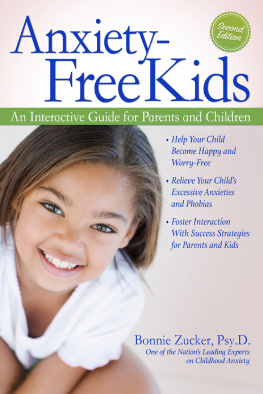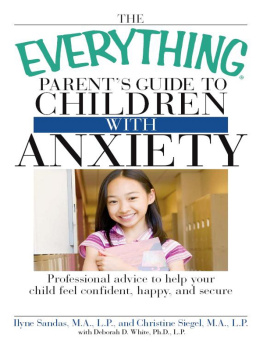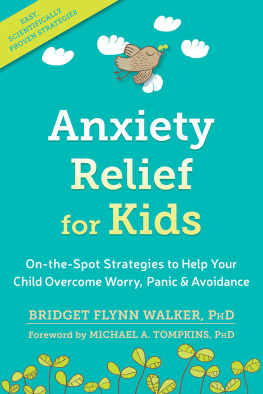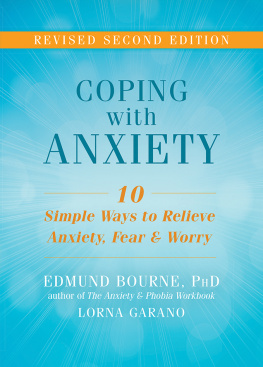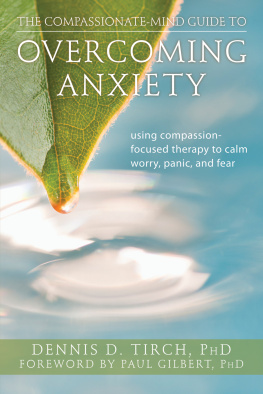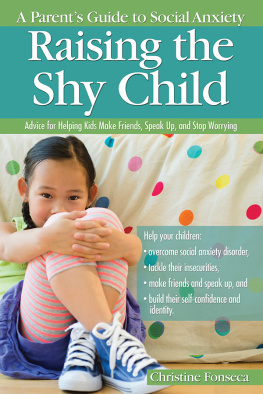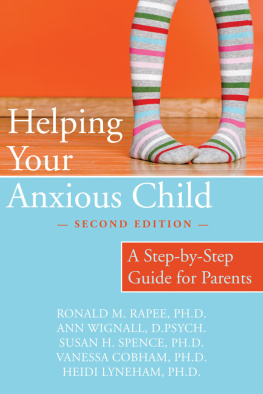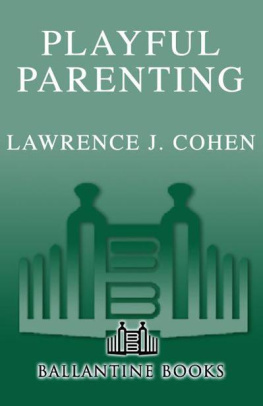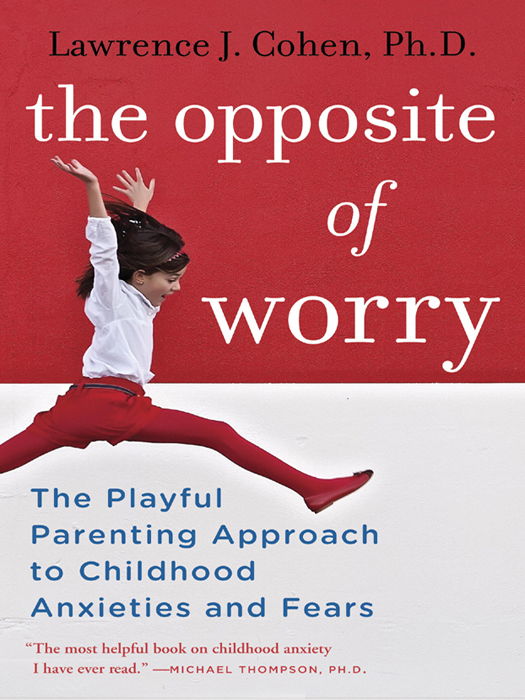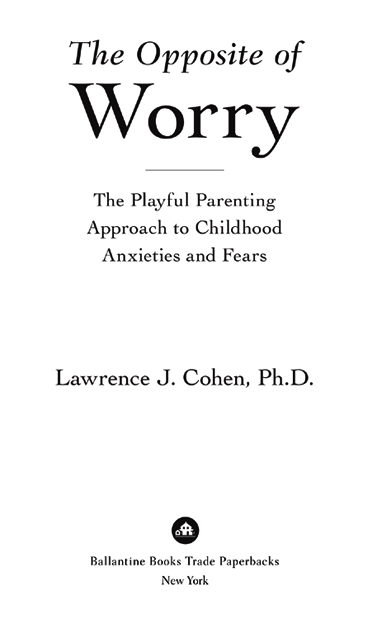Praise for
The Opposite of Worry
The Opposite of Worry offers a treasure trove of ideas to help children feel confident and secure. Lawrence Cohen has written a book that will help every parent of an anxious child. He describes the causes and symptoms of childhood anxiety and explains how children can overcome even the most tenacious fears in the context of a loving and playful parent/child relationship.
Aletha Solter, Ph.D., founder of Aware Parenting and
author of Attachment Play
Heres the help parents of anxious children have been looking for! Dr. Cohens genius is in the warm and generous spirit of the strategies he outlines for parents. He grounds his playful approach in a sound explanation of how anxiety affects children, and how they heal. Parents will come away with plenty of ideas to help them develop their childrens confidence. While reading, I found myself thinking, Id like to try that for myself!
Patty Wipfler, Founder and Program Director,
Hand in Hand Parenting
Except for the authors family members, all names and other identifying information of parents and children have been changed. Some of the children described are composites of real people.
A Ballantine Books eBook Edition
Copyright 2013 by Lawrence J. Cohen, Ph.D.
All rights reserved.
Published in the United States by Ballantine Books, an imprint of The Random House Publishing Group, a division of Random House, LLC, New York, a Penguin Random House Company.
B ALLANTINE and the H OUSE colophon are registered trademarks of Random House, LLC.
Library of Congress Cataloging-in-Publication Data
Cohen, Lawrence J. (Child psychologist)
The opposite of worry : the playful parenting approach to childhood anxieties and fears / Lawrence J. Cohen, Ph.D.
pages cm
Includes bibliographical references.
eISBN: 978-0-345-53932-8
1. Anxiety in children. 2. Fear in children. 3. Parenting. I. Title.
BF723.A5C62 2013
155.41246dc23 2013020479
www.ballantinebooks.com
Cover design: Anna Bauer
Cover photograph: Santiago Ba/Flickr/
Getty Images
v3.1
Contents
Introduction
Scary, Fun, and Safe
Do something scary, fun, and safe every day.
A nine-year-old boy
I needed an idea for my eighth-grade science experiment. My mother was the director of a nursery school, and every spring the children hatched chickens as a project. I cared for the eggs and the baby chicks on nights and weekends. My sister Jeanie was studying to be a psychologist at the time (I guess you could say its the family business). She told me about her professors research on tonic immobilization, also known as playing possum. Many animals, including chickens, play dead when they are too scared for fight or flight, or because they know instinctively that hawks wont eat anything that isnt alive. I had my science experiment!
Once the baby chicks were a few days old, I gently held each chick on its side and stared into one little eye, trying to imagine how a hawk would look at a chicken. After I let go, it stayed immobilized for about a minute. Then it popped up and walked around again, demonstrating the cycle of fear and recovery. In the next experiment I immobilized two chicks at once. They both stayed down much longer than either one alone didabout five minutes. Then I let one chick wander around the box while I immobilized another oneit popped up after only a few seconds.
My conclusion: A frightened chicken looks to the second chicken to see if its safe. When the second chicken is walking around happily, it seems to signal the first chicken that all is well: That second chicken isnt scaredand hasnt been eatenso it must be safe for me to get up and walk around. When the second chicken is immobilized, the first one seems to think, I dont see a hawk, but that second chicken must see one, since it hasnt gotten up yet. Id better stay where I am. My sisters professor, Dr. Gordon Gallup, found that chickens stay immobilized longest when they look in a mirrorthey see their mirror image as another scared chicken.
Years later, as I began to work with families, I wondered why some parents have such trouble reassuring their anxious children. My old second-chicken experiments gave me a clue to this mystery. Children who are slightly anxious just need a brief word of reassurance or comfort from Mom or Dadthe parent is the unafraid second chicken. Children who are highly anxious often ignore reassurance, or it makes them even more upset. Sometimes thats because they have anxious parents. When these children look around they see an anxious parenta scared second chicken who confirms their view that the world is a dangerous place.
Even when parents are not anxious, children with high anxiety may not notice the relaxed person in front of them. Thats because anxiety can lead people to see the world through a lens of danger. Its as if they always see a scared second chicken, like chickens immobilized in front of a mirror. Whether their parents are anxious or not, children with high anxiety often remain frozen in that feeling.
I started encouraging parents of anxious children to stop their endless attempts at reassurance. After all, the unafraid second chicken does not soothe the immobilized chickens fear with logic, words, or behavior modification. I developed a technique I call The Second Chicken Question: Would you look in my eyes and see whether or not Im scared? This draws them out of their frozen fear and helps them find security. It works much better than Theres no need to be scared.
In addition to inspirations from the second chicken, this book also contains ideas for resetting the Security System. Thats my term for the minds response to dangerand safety. The Security System can save our lives. Without anxietys alarm function we wouldnt bother to look both ways before crossing the street. We wouldnt run, hide, or fight back if we were in danger. The Security System is disrupted by excess anxiety. Children who are prone to high anxiety have an alarm signal that is too sensitive. Thoughts set off the alarm even if there is no immediate danger: What if lightning hits the house? If only I had studied harder. Someone might laugh at me. What if no one talks to me?
An effective Security System has to have an all-clear signal. After a fire alarm rings, how do you know when it is safe to go back inside? Along with an overly sensitive alarm system, anxious children have a poorly developed all-clear signal. They dont seem to notice any signals of safety, even after the second chicken has popped up and is walking around pecking at all the corn. Rumination, obsessive thinking, compulsive urges, and nonstop worries are examples of alarm bells that are never replaced by an all-clear signal.
Since they dont have a comforting second chicken or an effective Security System, anxious children use avoidance. They dont just avoid danger, they avoid anything that reminds them of danger. Anxious children even try to avoid feeling anxious. Unfortunately, avoidance increases anxiety in the long run. So avoiding avoidance is one of the themes of this book.
WHY I WROTETHE OPPOSITE OF WORRY
I have been anxious since my own childhood. I still remember the day I realized that some people dont see the world in the same anxious way that I do. I am embarrassed to admit that I was already an adult when I learned this fact. I was driving on the highway when the exhaust pipe fell off the car in front of me. I swerved around it, straightened out the car, and started to panic. For the next ten minutes I kept repeating, We could have died! What if we had hit that tailpipe?



